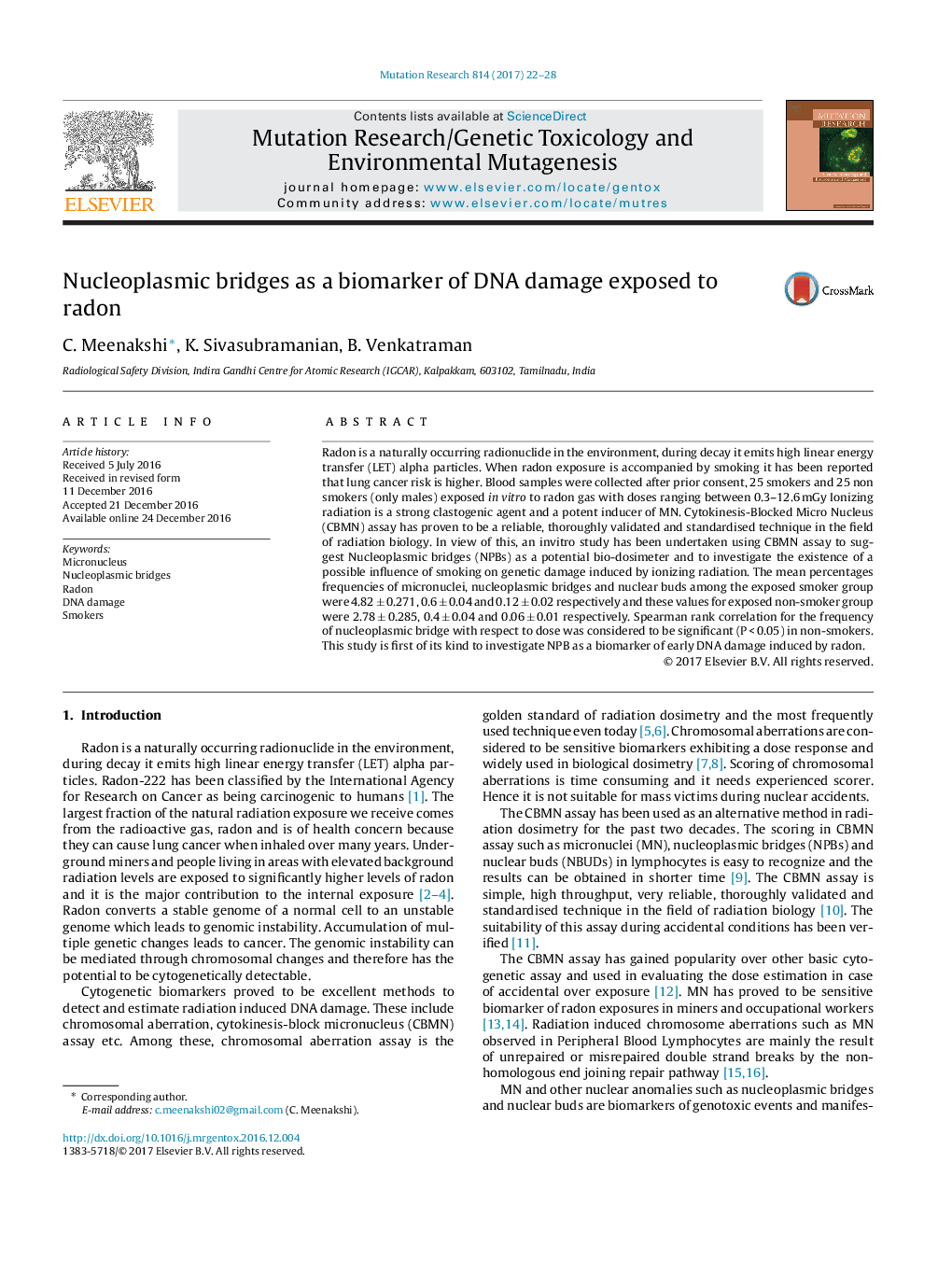| Article ID | Journal | Published Year | Pages | File Type |
|---|---|---|---|---|
| 5528744 | Mutation Research/Genetic Toxicology and Environmental Mutagenesis | 2017 | 7 Pages |
â¢CBMN assay has been proved effective in the study of chromosome damage induced by radon.â¢First of its kind to investigate Nucleoplasmic bridges as a biomarker of early DNA damage induced by radon.â¢Frequencies of Mn in smoker cells are increased by a factor of four.â¢The study indicates the usefulness of micronucleus analysis as a biological exposure index for individuals risk assessment.
Radon is a naturally occurring radionuclide in the environment, during decay it emits high linear energy transfer (LET) alpha particles. When radon exposure is accompanied by smoking it has been reported that lung cancer risk is higher. Blood samples were collected after prior consent, 25 smokers and 25 non smokers (only males) exposed in vitro to radon gas with doses ranging between 0.3-12.6 mGy Ionizing radiation is a strong clastogenic agent and a potent inducer of MN. Cytokinesis-Blocked Micro Nucleus (CBMN) assay has proven to be a reliable, thoroughly validated and standardised technique in the field of radiation biology. In view of this, an invitro study has been undertaken using CBMN assay to suggest Nucleoplasmic bridges (NPBs) as a potential bio-dosimeter and to investigate the existence of a possible influence of smoking on genetic damage induced by ionizing radiation. The mean percentages frequencies of micronuclei, nucleoplasmic bridges and nuclear buds among the exposed smoker group were 4.82 ± 0.271, 0.6 ± 0.04 and 0.12 ± 0.02 respectively and these values for exposed non-smoker group were 2.78 ± 0.285, 0.4 ± 0.04 and 0.06 ± 0.01 respectively. Spearman rank correlation for the frequency of nucleoplasmic bridge with respect to dose was considered to be significant (P < 0.05) in non-smokers. This study is first of its kind to investigate NPB as a biomarker of early DNA damage induced by radon.
